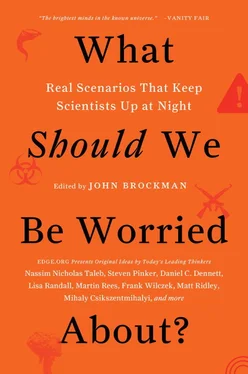• Yes, no one can hide from the consequences of failing global cooperation. Yes, everybody will in some way become part of global solutions. But what is the actual scale at which global cooperation happens? Global cooperation involves multiple layers of decision-making instances. Decisions are frequently delegated to representatives of larger communities to coordinate action at local, regional, national, and global levels. Thus, while the consequences of what we call ”global cooperation” are in fact global, the decision-making process itself is done in relatively small groups of people. So why doesn’t it work? What are the differences between local cooperation, as we know and experience it every day, and global cooperation, if the size of the group of cooperators is roughly the same?
• The difference is that the individuals who are interacting in a global-cooperation scenario respond to a different, more complex problem space. International representatives who carry out the bulk of negotiations interact in principle like individuals, but they carry the burden of speaking for a much larger constituency. These people act both as members of a small group of experts and as representatives of the interests of thousands or millions of people. The interests of the masses are one of the factors taken into account by those making decisions on their behalf. This added layer of responsibility might fundamentally change the structure of cooperation. We desperately need to know how.
• Besides their own and their constituents’ stakes in mitigating global climate change, these representatives also have to worry much more about the popularity of their decisions than is typical in everyday local cooperation. While we all worry to some extent about the social consequences of our decisions, the careers of the representatives in global cooperative scenarios depend on their popularity—the reelection problem. The consideration of reelection seriously narrows any representative’s decision space in an already increasingly difficult scenario. Hence the institutions we built to succeed in solving local cooperative dilemmas are potentially inadequate for global cooperation.
• While we understand local cooperation quite well, these factors and likely many others turn global cooperation into another beast altogether. While we battle to strap a saddle on its back, the chances of success are minimal unless we learn how humans interact in these new and extraordinary scenarios and use that information to build structures for global cooperation that bring out the cooperative side of human nature.
THE BEHAVIOR OF NORMAL PEOPLE
KARL SABBAGH
Writer, television producer; author, Remembering Our Childhood: How Memory Betrays Us
The most worrying aspect of our society is the low index of suspicion about the behavior of normal people. In spite of the doctrine of original sin that permeates Christianity, the assumption most of us hold about most people in everyday life is that they are not, on the whole, criminals, cheats, mean-spirited, selfish, or on the lookout for a fast buck. Bad behavior is seen as something to be noticed, reported on, and analyzed, whereas people who do not lie and cheat are taken for granted. Good behavior is seen as the default mode for humans, and bad behavior is seen as “aberrant,” even though, from self-knowledge as well as experiments like Stanley Milgram’s, we know that “normal” people are not always saints.
This unwillingness to believe the worst of people permeates society and harms us in all sorts of ways. The most egregious current example, of course, concerns bankers and financiers, who have shown that only the most severe constraints on their activities would stop them from filching our purses and grabbing huge salaries or severance payments that are usually rewards for failure. And it is precisely those constraints that the institutions resist most strongly, promising after each one of their crimes is exposed that self-regulation will prevent the next. But any daily newspaper will show countless examples of individuals who demonstrate that when they (we?) can get away with something, they will.
There is much psychological research into the nature of evil. This usually proceeds from the assumption that people are naturally good and tries to explain why some depart from this “norm.” Isn’t it time we took the opposite view and looked into why some people, perhaps not many, are “good”? If you look hard, you can find examples of these. Whistleblowers, for example, who cannot stand by while bankers fiddle, doctors cover up mistakes, priests abuse children, or statesmen cheat on their expenses. Paradoxically, instead of their good deeds being welcomed, whistleblowers are often ostracized, even by people whose behavior is not—at least overtly—meretricious but who feel that reporting illicit behavior is itself distasteful.
Just as there is emerging evidence of a biological basis for political beliefs, left-wing vs. right-wing, perhaps we should be looking for a biological basis of goodness. So many of the world’s problems have at their root the propensity of humans—and, indeed, nations—to behave in ways that try to maximize benefits to themselves at the expense of others. Even attempts to instigate solutions to climate change are bedeviled by personal and corporate selfishness.
What we should be worried about, therefore, is that science is missing out on a possible alternative solution to many of our problems. It should be considering how to make more people “good” rather than trying to understand what makes people “bad.”
BRIAN KNUTSON
Associate professor of psychology & neuroscience, Stanford University
I worry about worry. Specifically, is our worry aimed at the right targets? The adaptive value of worry is that it helps us avoid death without having to experience it first. But worry can save us only when directed at actual threats and only by eliciting action (avoidance). Although worry seems to be caused by external factors, it isn’t. The neural worry engine is always on, looking for its next target, like Freud’s free-floating anxiety.
The ancestral environment probably tuned our worry engines, since individual differences in levels of worry show significant heritability (around 50 percent) and are normally distributed (most people experience moderate rather than minimal or excessive worry). This bell-shaped distribution implies that over generations those who worried too little died (or were eaten), whereas those who worried too much failed to live (or reproduce). Thus our forebears’ menu of environmental threats likely selected an optimal level of worry. Less appreciated is the notion that the ancestral environment selected not only the level but also the targets of worry. Consider common targets of phobias, such as public judgment, snakes, spiders, heights. Unless you live in the jungles of New Guinea, these are probably not the existential threats worthy of your worry engine. Leading causes of death in the United States typically are more “boring” (heart disease, cancer, stroke, accidents), encouraged by more proximal causes (smoking, alcohol consumption, poor diet, lack of exercise, cars, firearms). This “worry gap” between imagined and actual threats suggests that our worry is often directed at the wrong targets.
My metaworry , or worry about worry, is that actual threats are changing much more rapidly than they have in the ancestral past, which could widen the worry gap. Humans have created much of this environment with our mechanisms, computers, and algorithms that induce rapid, disruptive, and even global change. Financial and environmental examples spring to mind—witness crashes of global finance bubbles and the rise in global temperature over the past decade. Not only are these changes rapid with respect to an evolutionary time frame but they plausibly result from human causes. I worry that our worry engines will not retune their direction to focus on these rapidly changing threats fast enough to take preventive action.
Читать дальше












